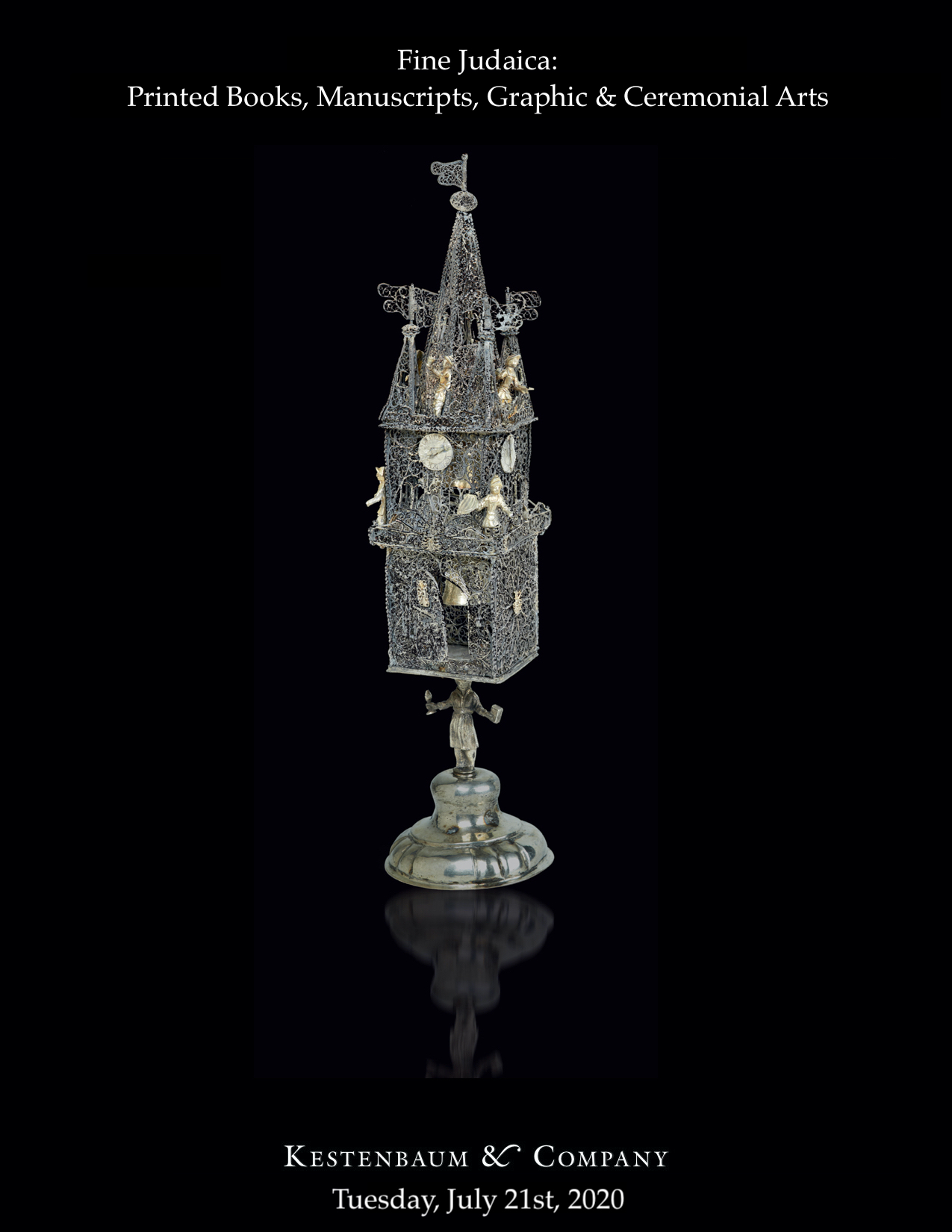(US Congressional Report). Discriminations in Switzerland against Citizens of the United States of the Hebrew Persuasion.

Auction 90 |
Tuesday, July 21st,
2020 at 1:00pm
Fine Judaica: Printed Books, Manuscripts, Graphic & Ceremonial Arts
Lot 184
(SWITZERLAND).
(US Congressional Report). Discriminations in Switzerland against Citizens of the United States of the Hebrew Persuasion.
(Washington D.C: 1860)
Est: $600 - $900
PRICE REALIZED $500
This publication contains thirty-six government documents and letters pertaining to Swiss discrimination against American Jews. The contents were collected by order of President James Buchanan in compliance with an 1859 House resolution requesting information on the discrimination stemming from a Swiss-American treaty. The earliest document concerns one A. Gootmann, an American citizen residing in Switzerland who was threatened with expulsion on account of his Jewish faith.
America and Switzerland had signed a commercial treaty in the 1850s that permitted only Christians from doing business in Switzerland. American diplomats and politicians were aware of the implications of this illiberal clause, but were willing to turn a blind eye because of the imperative for the rapidly industrializing nation to develop markets in Europe. The treaty represented an uncommon instance of US government endorsed anti-Semitic discrimination.
American Jews were immediately outraged and attempted to use their leverage with elected officials to have the treaty amended or abrogated. For example, Isaac Leeser, who was infuriated that an “American diplomat could be so ignorant of this country’s institutions as to sanction … the spirit of discrimination” corresponded with leading senators on the matter (Occident, vol. 8, p. 614). These efforts were largely unsuccessful, and it was only due to French insistence that the Swiss finally ceased barring Jewish merchants in 1879.
Nonetheless, from a historical perspective, the opposition of American Jews to the treaty was important, as it was central to the creation of a national Jewish consciousness. “The greatest benefit that accrued to American Jewry,” observed historian Jacob Rader Marcus, “was the growth of a sense of Jewish homogeneity in the land. A common threat created a common Jewry … national agitation made for national Jewish unity. There was still no national organization tying Jews together but there is no question that national Jewish unity was slowly but surely being forged.” (J. R. Marcus, United States Jewry, II, 290-7).
